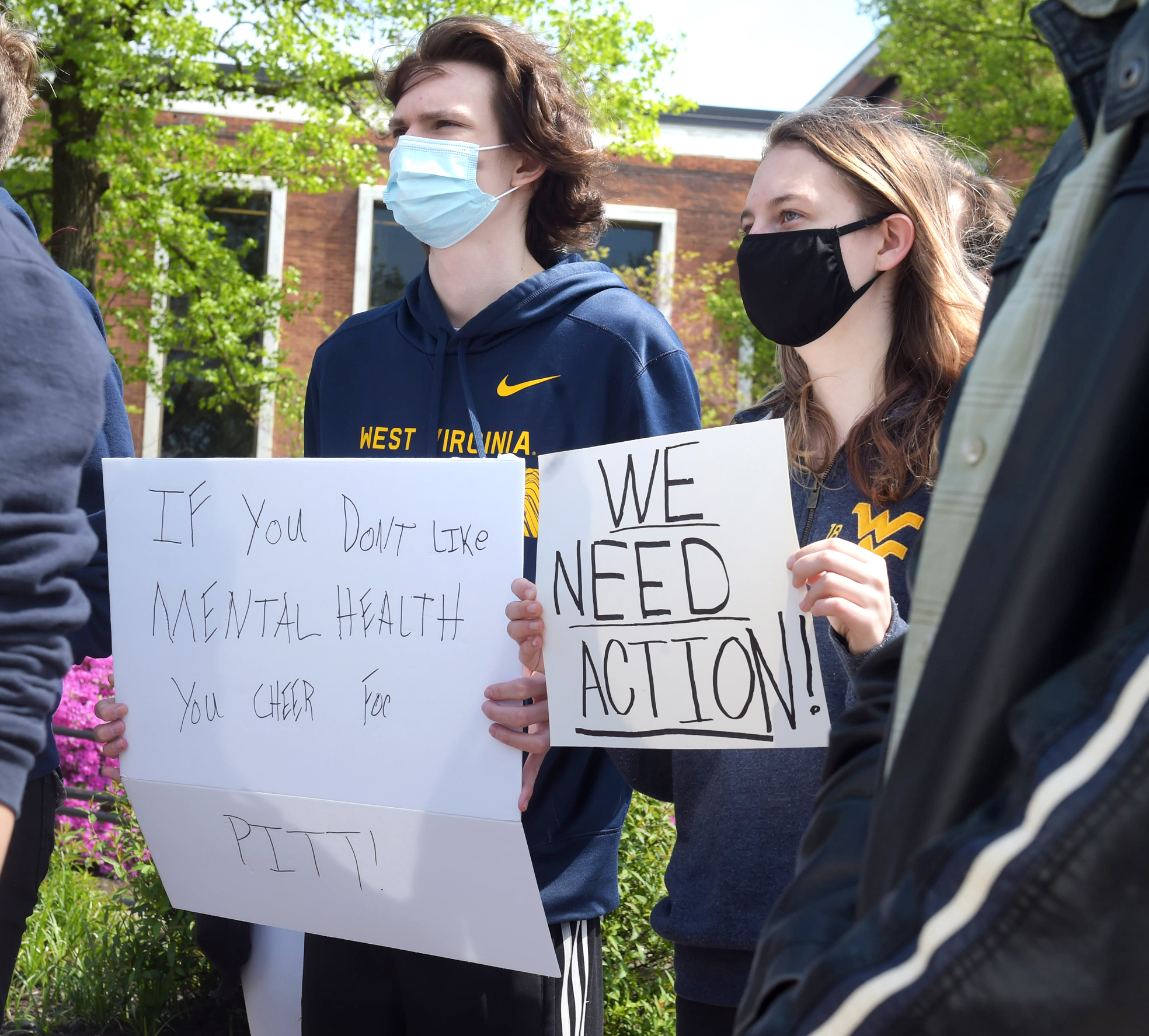Additional reporting by Gabriella Brown
After the death of Ben Pravecek, many WVU students started voicing concerns on social media about mental health services on campus, or lack thereof, offered by the Carruth Center.
Pravecek, a 20-year-old business major from Harpers Ferry, fell or jumped to his death from a parking garage in Sunnyside. Police do not suspect foul play.
“Every time something like this happens, they tweet out that number for the Carruth Center and tell us they are here for us, when they’re really not,” said Jacob Pocius, a senior studying neuroscience at West Virginia University.
The Carruth Center offers mental health services including individual counseling, crisis counseling, group counseling and drug and alcohol counseling, according to its website.
Its services are free to students and many of the 15 people who contacted The Dominion Post to share their experiences with the Carruth Center said they couldn’t afford to seek help otherwise.
This was the case for Pocius, who said he has attended sessions at the Carruth Center intermittently since his freshman year.
“When I had initially gone to see them, I was having some pretty serious suicidal thoughts, that kind of thing, like depression from middle school that I hadn’t dealt with,” Pocius said. “I was trying to get that under control, because I know how difficult that switch to college can be.”
He felt his first visit was not helpful and the things discussed did not relate to his reason for visiting.
“I stopped seeing him after that initial visit,” he said “I think I didn’t go back again until my sophomore year, at which point I was looking for a psychiatrist for medication because I had such a poor experience with the therapy side of things.”
When he returned during his sophomore year, it was around midterms. He said he was told because it was late in the semester, it would be too difficult to find him an appointment. He was instead given resources to find help elsewhere in the community; however, finding therapy elsewhere was not a viable financial option for him.

Samantha Mariano, a civil engineering student at WVU, faced a similar scheduling problem. At a protest calling for increased mental health access in front of the Mountainlair on Friday, Mariano said she waited six weeks for her first appointment, after being told she was a low-priority case.
Wait times aren’t the only reason some students said they weren’t able to get help from the center.
One woman, who preferred to remain anonymous, said she sought help from the Carruth Center after being sexually assaulted and was told to find somewhere “more capable.” Another woman, who went to Carruth for the same reason, said she was told she was “too troubled” to be treated there.
WVU Spokeswoman April Kaull said students are not “turned away” from Carruth, but when the center is unable to provide the level of care required it “works hard” to connect the student with the right level of care — be it a community provider, hospital or a drug and alcohol center.
Kaull said the center saw more than 3,100 students during each of the last three school years. As of April 29, 2,691 students have been seen in the 2020-21 school year.
Students who request a crisis clinic appointment do not wait and services are available immediately, Kaull said. There are 80 hours a week for immediate, same-day appointments.
A typical first assessment visit is scheduled in two to three days, Kaull said. The next visit is an average wait of 6.5 days.
Not every student who contacted The Dominion Post shared a negative experience with the Carruth Center. Three said they had a positive experience.
“They gave me an outlet to talk about the stressful things that were going on,” said Sean Poole, a history student at WVU who has been going to the Carruth Center since late spring 2018.
He said the center helped him start and manage medication, which was new to him, and individual meetings with therapists have been helpful.
“I realize that many people have been upset with the university and the Carruth Center recently,” Poole said. “While their personal opinions are completely reasonable, I feel that hating on the Carruth Center does not solve any problems. The center needs more therapists and longer hours of operation so that they can fit in more time for meetings with current and future students who need help.”
Over the last decade, demand for mental health services at college counseling centers, such as the Carruth Center, has increased exponentially, according to Kaull.
This fall, WVU is launching an additional student mental health clinic called Health Minds University, managed by the Hospital’s Behavioral Medicine department, Kaull said.
The Health Minds University will work in partnership with Carruth Center and will be dedicated to providing a full spectrum of mental health care to WVU students referred there, she said.
TWEET @DominionPostWV




